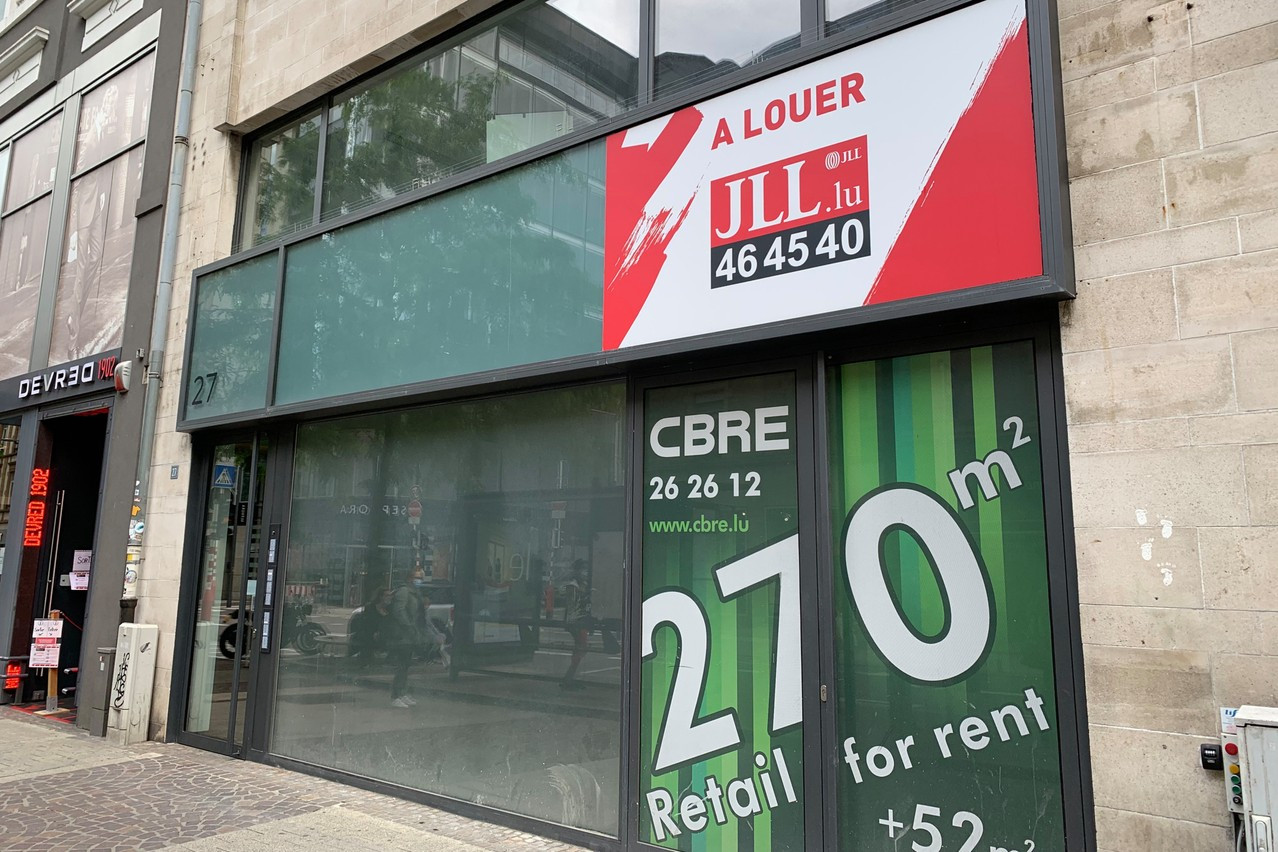It’s easy to lose count of the "for rent" signs on shops in Luxembourg. Whether in the main arteries or shopping centres, the market is currently experiencing a slower pace.
“Business has suffered a little in recent years, retailers are facing increasingly serious difficulties with pressure on profitability. Covid-19 has accelerated the process and sometimes stopped new developments," explains Dimitri Collignon, director of retail agency at JLL Luxembourg.
If currently the prime rent (the high average rent) in the capital is at €150 euros/m2, a downward trend is starting. "In the city centre and the Gare district, owners have already changed their strategy,” explains Dimitri Collignon, who estimates a drop in rent "at around 10 to 15%".
Unclear where market is heading
The number of retail spaces has continued to grow in recent months with the opening of the Royal-Hamilius, Cloche d'Or and Infinity Shopping centres, to name just those in the capital. But in surrounding areas too, there have been plenty of announcements of new complexes or extensions, from Escape in Capellen to the complex planned for Junglinster, as well as the Knauf Shopping Center Schmiede and Copal in Mertert.
“Great players and great brands like Ladurée or Pull & Bear are leaving the ‘ville haute’ [upper part of town], there are high stakes. But we still have a lot of requests,” Collignon adds.
In the first half of 2020, the volume of business taken up in Luxembourg has declined: it reached 2,218m2, or 57% less in one year. In shopping centres, there were 2,480m2, or 94% less than in the first half of 2019. Only the “warehousing” retail segment performed well, at 3,767m2, an increase of 88%.
"There are a lot of requests for storage, warehouse and showroom activities, these are very long-term activities,” explains Collignon. In five years, the volume of real estate transactions involving supermarkets has fallen from 20% to 33% in Luxembourg.
So where is the market heading? Not sure, according to JLL, which on one hand sees an expansionist strategy of certain brands, including Delhaize, for example, which is having a run of new openings. And on the other, the impact of teleworking is pushing demand towards the food trade. "If everyone comes back to the office, I think consumption habits will return to normal and distributors will return to normal performance," he concludes.
This article originally appeared in French on Paperjam.lu and has been translated and edited for Delano.
